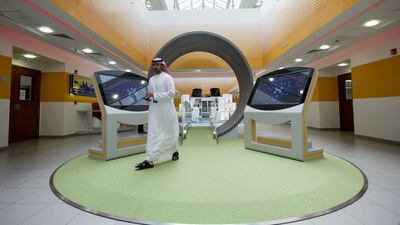An announcement made by Sheikh Mohammed bin Rashid, Vice President, Prime Minister of the UAE and Ruler of Dubai, this week launched a programme to introduce innovation and leadership curriculums in various government and private universities in the UAE. The policy will require universities to update and revise their courses in line with the new requirements. These changes include an emphasis on innovative, analytical, communication and leadership skills and follows efforts made throughout the year to build an innovative community that keeps up with the rapid changes and developments of the world.
Including innovation in the curriculum is a great first step towards cementing these objectives into the education system but we must also be careful not to narrowly define innovation. The idea of innovation tends to spur investments in science and technology. While being proactive about developing new technologies is necessary, innovation should be encouraged across all fields and needs to be backed by evolving policies. This is why I find the addition of analytical, communication and leadership skills to be significant.
We need to be aware and receptive to technological advances as well as the skill sets that future generations might need, including many that may not even exist today. This needs to be fuelled by a change in the mindset of teachers, students and society. I believe that a focus on the learning process rather than defined final goals is a necessary shift. We need to place the majority of the emphasis on developing skills rather than test scores. Problem-solving skills (independent thinking, research skills and analysis) as well as social skills (empathy, diplomacy, team-building) need to be prioritised.
How we learn and our access to information has been altered and in many cases these factors have not been taken into consideration. We used to live in a world where most information was reserved for those who studied certain topics and then memorised them, but now anyone can access anything from the history of cotton to Greek mythology. We need to think about the implication of this reality on how we learn and what we are taught. In most cases, schools have adapted by getting smart boards or equipping their students with tablets but they have not thought about the effect of having search engines at the tip of your fingers all day every day.
Developmental psychologists have found that any screen-based technology we use, including video games, will certainly enhance our visual-spatial skills – but only at the expense of developing other mental abilities, including critical thinking, knowledge acquisition, and imagination. Contemporary technologies have weakened our capacity for deep processing. In addition, recent research shows that the availability of search engines is changing the way we use our memories. We now have lower rates of recall of information itself and enhanced recall instead for where to access it.
So, while smartphones can help solve arguments, skills like critical thinking and problem solving are developed only in the context of factual knowledge. In other words, you’ve got to have knowledge stored in your head, not just in your computer
Therefore, I think a large part of innovation is not simply developing technology, but also developing the whole social foundations that go with it and being very aware of the pros and cons at each step. How can we effectively take advantage of these technologies and continue to innovate without hurting our intelligence, reducing attention spans or our ability to memorise facts? How do we manage a generation more comfortable hiding behind screens who feel more at ease texting than having face-to-face conversations? How can we take advantage of tools such as the ability to communicate with people across the world so effortlessly? We have yet to significantly innovate the way we teach or learn.
At its core, innovation is creativity. It is a dynamic process that involves fresh thinking. Not only should we encourage people to be creative, but I believe that the next step is that we need to build a social and cultural environment that is receptive to these changes. All-encompassing innovation results from systems that are not set in stone; ones that have flexibility built into them.
Fatima Al Shamsi is a globetrotting Emirati foodie, film buff and football fanatic

